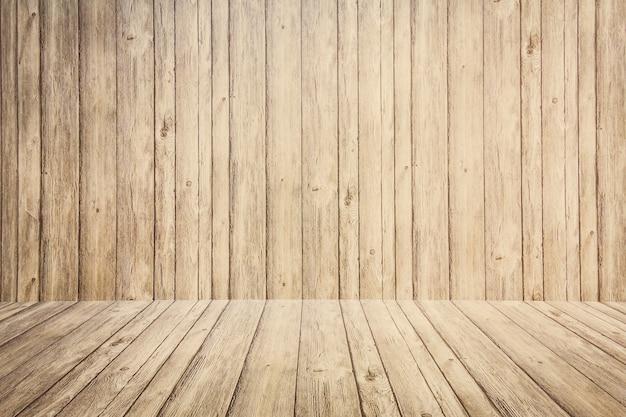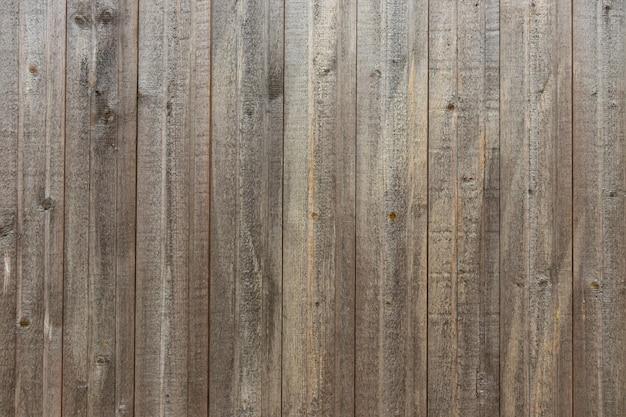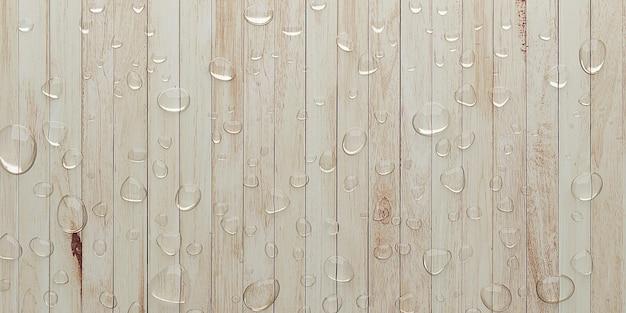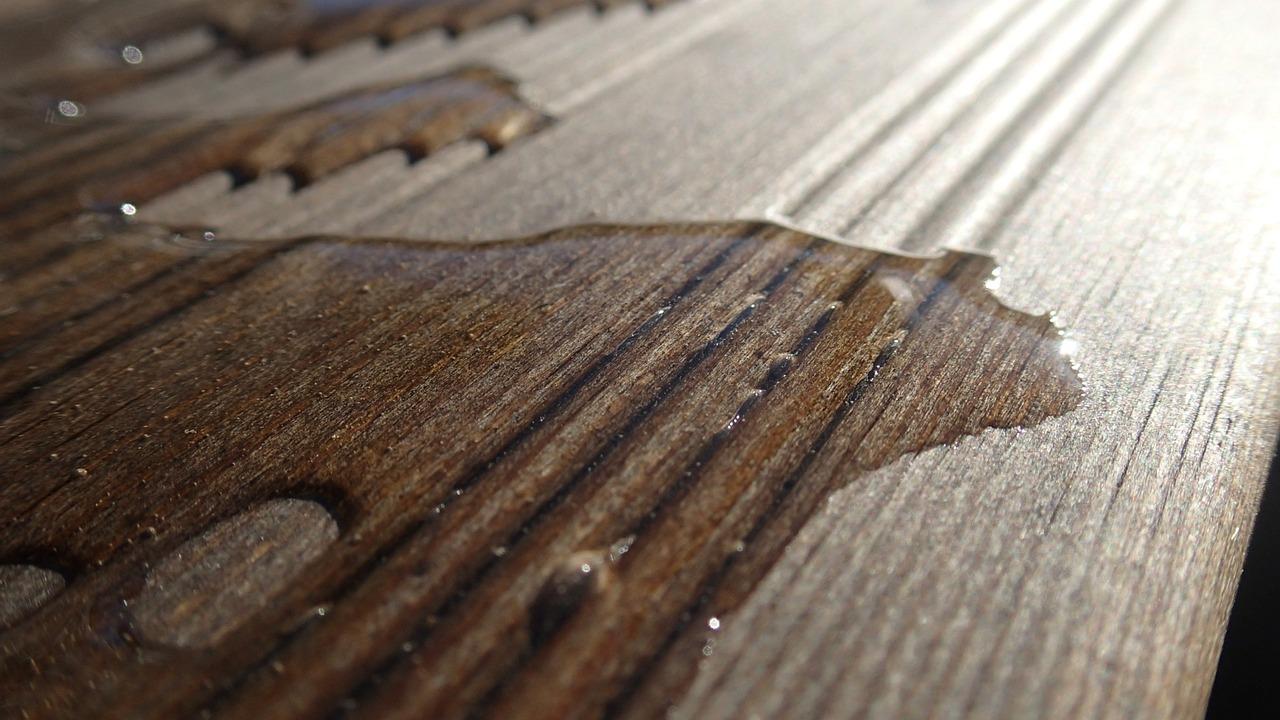Have you ever experienced water coming out of your floor boards? This can be a frustrating experience for any homeowner or renter. You might be wondering where the water is coming from, and how to fix the issue before it causes serious damage to your property.
There are various reasons why water might be coming out of your floor boards, and it’s essential to understand the underlying cause to deal with the issue effectively. It could be due to a leaky pipe under the floor, seepage from heavy rain, or even a plumbing issue in your building.
Whatever the reason might be, it’s crucial to act quickly and fix the problem before it leads to costly repairs and damages. In this comprehensive guide, we’ll cover everything you need to know about water coming out of floor boards. From identifying the problem to fixing it, we’ll walk you through each step in detail.
Throughout this guide, we’ll address common questions, including “How to tell if a pipe is leaking under the floor?” and “How to stop water from coming through your floor?” Follow our expert tips and tricks to ensure a safe and comfortable living environment in your home. So let’s dive in and solve this frustrating problem together!
Understanding Water Coming Out of Floor Boards
Are you seeing water coming out of your floor boards? It’s not something you should ignore. If left untreated, it can cause more damage and even lead to mold growth. In this article, we’ll help you understand the possible causes and guide you on what to do next.
Possible Causes of Water Coming Out of Floor Boards
Plumbing Leaks
One of the most common causes of water coming out of floor boards is plumbing leaks. Pipes that run under the floor can wear out and start to leak. If the pipe is a cold-water pipe, the water would be clear and cold, while if it is a hot-water pipe, water would be warm or hot.
Water Damage
Water damage can also cause water to come out of floor boards, especially after flooding, a burst pipe or roof leak. Moisture trapped within the flooring creates an ideal environment for mold growth if left unchecked.
High Humidity
Another reason why water may be coming out of the floor boards is high humidity. Excess moisture in the air can seep into the flooring and cause it to buckle or warp, resulting in water coming out of the floorboards.
What to Do If You Have Water Coming Out of Floor Boards
If you notice water coming out of your floorboards, don’t panic. Here are a few steps you can take:
-
Turn off the water source to prevent more water from flowing.
-
Call a qualified plumber to locate and fix the source of the leak.
-
Remove the affected floorboards to assess the extent of the damage.
-
Dry the area thoroughly to prevent mold growth.
-
Replace the damaged flooring if necessary.
Water coming out of floor boards is not something to ignore. It can signal issues that, if left unaddressed, can lead to costly damages. If you’re experiencing water coming out of floorboards, it’s important to get in touch with professionals to help you locate and fix the issue.
Water on Floor But No Leak
Have you ever experienced water coming out of your floorboards, but after searching for hours, you still can’t seem to find a leak? You’re not alone! Here are some possible reasons why you’re finding water on your floor but no obvious leak:
Condensation
Condensation is the most common cause of water on the floor. When there’s a drastic difference between the temperature inside and outside, it can cause condensation to form on the surface. This can be especially common in basements and crawl spaces. To minimize condensation, you can improve ventilation, add insulation, or run a dehumidifier.
Plumbing Issues
Sometimes, plumbing issues like a blocked drain or overflowing toilet can cause water to accumulate on the floor. Other signs of plumbing issues include low water pressure, odd smells, or gurgling sounds. Be sure to double-check your plumbing fixtures!
Air Conditioning
An air conditioner produces cold air, which can cause moisture in the air to condense and drip down onto the floor. If you notice water near your AC unit, it could be due to a clogged drain pan or malfunctioning condensate pump. Check your AC unit’s manual or call an HVAC technician to inspect it.
Groundwater
If you live in an area with a high water table, groundwater can seep into your home through cracks in the foundation. This can cause water to accumulate on the floor. To prevent flooding, you can seal any cracks or gaps in your foundation and install a sump pump.
In summary, water on the floor with no apparent leak can be a frustrating and confusing problem. By understanding the possible causes and taking the necessary steps to address them, you can prevent further damage and keep your home dry and healthy.
Water Leaking Through Floor Tiles
One of the most frustrating things that can happen in your home is discovering water leaking through your floor tiles. This can lead to a whole host of problems, including mold growth and even structural damage. In this section, we’ll take a look at some common causes of water leaking through floor tiles and how you can deal with the problem.
Causes of Water Leaking Through Floor Tiles
There are a few different reasons why water might be leaking through your floor tiles. Here are some of the most common causes:
1. Cracked Grout
One of the most common causes of water leaking through floor tiles is cracked grout. Over time, the grout between your tiles can crack or become damaged, which can allow water to seep through. If you notice that your floor tiles are getting wet, take a closer look at the grout to see if there are any cracks or gaps that could be causing the problem.
2. Damaged Tile
Another common cause of water leaking through floor tiles is a damaged tile. If there is a crack or chip in one of your tiles, water can seep through and cause damage to the subfloor below. If you suspect that a damaged tile is the cause of your leakage problem, you’ll need to replace the tile as soon as possible.
3. Faulty Sealant
Finally, faulty sealant can also be a cause of water leaking through floor tiles. Sealant is used to create a waterproof barrier between your tiles and the subfloor, but if the sealant becomes damaged or degraded, water can seep through. If you suspect that faulty sealant is the cause of your leakage problem, you’ll need to reapply the sealant as soon as possible.
Dealing with Water Leaking Through Floor Tiles
If you’ve discovered that water is leaking through your floor tiles, there are a few things you can do to deal with the problem:
-
If the cause of the problem is cracked grout, you can try regrouting the tiles to create a waterproof barrier.
-
If the cause of the problem is a damaged tile, you’ll need to replace the tile as soon as possible to prevent further damage.
-
If the cause of the problem is faulty sealant, you’ll need to reapply the sealant to create a waterproof barrier once again.
Water leaking through floor tiles can be a frustrating and potentially expensive problem to deal with. By understanding some of the common causes of this issue and taking the right steps to deal with it, you can prevent further damage to your home and keep your floors looking great.
What to do When Water is Coming Out of Your Floorboards
When you notice water seeping through your floorboards, it’s important to take immediate action to prevent further damage to your home. Here are some steps you can take to stop water from coming out of your floorboards:
Turn off the Water Supply
Your first step should be to turn off the water supply to your home. This will help prevent any further water from seeping through your floorboards.
Locate the Source
Next, try to locate the source of the water damage. Check your sink, toilet, and shower for leaks. If you can’t find the source of the problem, it may be a burst pipe or another issue related to your plumbing system.
Call a Plumber
If you can’t find the source of the problem, it’s best to leave the job to a professional. A plumber can inspect your plumbing system and determine the cause of the water damage. They can also repair any leaks or other issues that may be causing the problem.
Dry the Affected Areas
Once you’ve located the source of the water damage and stopped the flow of water, you’ll want to dry the affected areas as much as possible. Use a mop or towels to soak up any water that may have seeped through your floorboards.
Check for Mold
Finally, you’ll want to check for mold growth in the affected areas. Mold can begin growing in as little as 24 hours after water damage occurs. If you notice any signs of mold growth, it’s crucial to have it removed as soon as possible. Mold can cause health issues, and it can also weaken the structure of your home over time.
In conclusion, water damage can be a serious issue that requires quick action to prevent further damage to your home. By following the steps outlined above, you can stop water from coming out of your floorboards and protect your home from further damage.
Water Coming from Under Floor Boards
If you’ve noticed water coming from under the floorboards in your home, this could be a sign of a plumbing or drainage issue. Here’s what to do:
Turn off the water supply
The first thing you should do is turn off the water supply to your home to prevent any further damage. You can do this by turning off the main water valve, which is usually located near the water meter. If you’re not sure where your main water valve is located, contact a plumber for assistance.
Locate the source of the problem
Once you’ve turned off the water supply, you can try to locate the source of the problem. Check for any visible leaks in your pipes or plumbing fixtures. If you can’t see anything obvious, the problem may be a blocked drain.
Clear any blockages
If you suspect a blocked drain is causing the issue, you can try clearing it yourself using a plunger or drain snake. If this doesn’t work, you may need to contact a plumber to clear the blockage.
Contact a professional
If you’re unable to locate the source of the problem, or you’re not comfortable attempting to fix the issue yourself, it’s best to contact a professional plumber. They have the necessary tools and expertise to diagnose and repair any plumbing or drainage issues.
In conclusion, water coming from under floorboards is a significant issue that should be addressed promptly to prevent further damage to your home. By following these steps, you can locate the source of the problem and take the necessary steps to fix it. Remember to always prioritize your safety and contact a professional if you’re unsure how to proceed.
Water Seeping Through Floor After Rain
It can be really frustrating to find water seeping through your floor after a heavy rain. It’s not only inconvenient, but it can also cause major damage to your home. In this section, we’ll take a look at what causes water to seep through your floor after rain and what you can do to prevent it.
Check Your Home’s Drainage System
One of the main reasons why water seeps through your floor after rain is due to poor home drainage. If your home’s gutters, downspouts, or other drainage systems are blocked or clogged, the water can back up and seep into your home through the floor. Make sure to regularly clean and maintain your drainage system to prevent water from seeping through the floor after rain.
Inspect Your Foundation
Another reason why water seeps through your floor after rain can be due to foundation issues. If your foundation is damaged or cracked, rainwater can seep into your home through the cracks and cause water damage to your floor. Inspect your foundation regularly for any cracks or damage and get it fixed as soon as possible to prevent water from seeping through your floor after rain.
Install a Sump Pump
Installing a sump pump can help prevent water from seeping through your floor after rain. The sump pump works by pumping any excess water out of your home and away from your foundation. It’s an effective solution to keep your floor dry and prevent water damage to your home.
Water seeping through your floor after a heavy rain can be a real headache. By regularly checking and maintaining your home’s drainage system, inspecting your foundation, and installing a sump pump, you can prevent water from seeping into your home and avoid any potential damage to your floor. Remember that prevention is key, so take the necessary steps to keep your home dry and safe.
Water Coming Up Through Floor Apartment
Living in an apartment can provide a convenient and cost-effective solution, especially if you’re living in a city. But what happens when you start to notice water coming up through the floor of your apartment?
Causes
There are several reasons why water may be coming up through the floor of your apartment. Some of the most common causes include:
- Leaking pipes: If there is a leak in your building’s plumbing system, water can seep into your apartment. The leak can be from pipes, a shower, toilet, or sink.
- Poor drainage: Apartments on the ground floor are particularly susceptible to poor drainage. If the drainage system is ineffective, water can accumulate and infiltrate your apartment.
- Flooding: Living in an area prone to floods can be risky. When it floods, the water can rise high enough to seep into your apartment through the floor.
- Damaged foundation: If the building’s foundation has cracks or damage, water can leak through to your apartment.
What to do
If you notice water coming up through the floor of your apartment, you must take immediate action. Here are the things you should do:
- Notify your landlord or building management immediately.
- Turn off the main water valve to stop any further water damage.
- If possible, try to clean up the water to prevent any slip hazards or mold growth.
Prevention
Prevention is always better than cure. Here are some tips to prevent water from coming up through the floor of your apartment:
- Fix any leaks or plumbing issues promptly.
- Place a mat or rug at the entrance to your apartment to prevent dirt and water from being tracked inside.
- Verify that the building has a functioning drainage system.
- Check the flood risk level before renting an apartment.
In conclusion, water coming up through the floor of your apartment can be a serious issue. It is essential to take prompt action and report the problem to your landlord or management. Keeping the preventive measures discussed above in mind can help you avoid such issues in the future.
How to Tell If a Pipe is Leaking Under the Floor
If you have water coming out of your floorboards, it could be a sign of a leaking pipe underneath. Here’s how to determine if you have a leaking pipe under your floor:
Check for Water Stains
The first thing you should do is check for water stains or discoloration on your floorboards or walls. This is especially important if the water is coming from an upper floor. If you notice any water stains, it is likely that there is a leaking pipe somewhere in your house.
Listen for Dripping Sounds
If you hear any dripping sounds coming from your floor, it is important to investigate them further. Dripping sounds are usually an indication that there is a leak somewhere.
Check Water Meter
Another way to determine if you have a leaking pipe under your floor is to check your water meter. Shut off all water usage and check the meter. If the meter is still turning, it likely means you have a leak.
Conduct a Pressure Test
To conduct a pressure test, you will need to shut off all the water and drain the pipes. Once the water is completely drained, shut off all the faucets and take a reading of the water pressure. Wait for a few hours and then go back and check the pressure again. If the pressure has dropped, it means there is a leak somewhere.
Hire a Professional
If you are unable to locate the source of the leak or if the repairs are too complex, it is best to hire a professional plumbing company to diagnose and fix the issue.
In conclusion, having water coming out of your floorboards can be a sign of a leaking pipe under your floor. By checking for water stains, listening for dripping sounds, checking your water meter, conducting a pressure test, or hiring a professional, you can determine if you have a leak and take the necessary steps to repair the issue.
Why is there water coming out of my floor boards
Have you recently noticed water coming out of your floorboards? If yes, it’s natural to feel concerned and wonder why this is happening. Several factors can contribute to water coming out of your floorboards. Here are some of the potential reasons why:
Plumbing problems
One of the most common reasons for water coming out of your floorboards is a plumbing issue. It’s possible that you have a leaky pipe in your house, which is causing water to seep through the floorboards. If you suspect this might be the issue, it’s important to call a licensed plumber to assess and fix the problem as soon as possible.
Poor ventilation
Another possible reason for water coming out of your floorboards is poor ventilation. Without proper ventilation, your home can develop moisture issues, which can lead to water damage. To prevent this, ensure that your home has proper ventilation, especially in areas that are prone to moisture buildup, such as bathrooms and kitchens.
Structural issues
If the water is coming out of your floorboards in a specific area or room, it could indicate a structural issue. For example, if you have a flat roof, there might be a leak that is causing water to seep into your home. If you suspect that this is the issue, it’s best to call a professional to assess the damage and provide recommendations for repairs.
Condensation
In some cases, water can form underneath your floorboards due to condensation. This can happen if there is a temperature difference between the air in your home and the ground. To prevent this, consider installing a vapor barrier under your floorboards.
Groundwater
Finally, in rare cases, groundwater can seep up through your floorboards. This can happen if there is a high water table in your area, or if there has been heavy rainfall. If you suspect that this is the issue, it’s best to call a professional to assess the damage and provide recommendations for repairs.
In conclusion, water coming out of your floorboards can be caused by various factors. If you have noticed water coming out of your floorboards, it’s important to assess the situation and take the necessary actions to prevent any further damage. Remember, prevention is always better than cure!
How to Stop Water from Coming through Your Floor
Water seeping through your floor can be an unpleasant surprise, and if left unaddressed, it can lead to significant damage to your house. Luckily, you can prevent this problem with a few simple steps. Here are some of the ways to stop water from coming through your floor:
Check the Plumbing
If you notice water coming through your floorboards, the most common cause is a problem with your plumbing. Pipes can burst or develop leaks, leading to water damage. Check for any visible leaks around the sink, bathtub, toilet, or any other water-using appliance in your home. If you can’t find the source of the leak, it is best to call a professional plumber.
Ensure Proper Drainage
A lack of proper drainage around your home can cause water buildup, especially during heavy rainfall. This can lead to water seeping through the floorboards. Inspect the gutters and downspouts on your roof to make sure they’re properly installed and clear of any debris. Consider adding a French drain or other drainage solutions to prevent water buildup around your home.
Repair Cracks
If you notice any cracks in your floors or walls, they can allow water to seep through from outside. Carefully inspect your floors and walls for any signs of cracks, and repair them as soon as possible. You can use sealants or epoxy injection to fix any cracks in your foundation.
Fix the Grading
Grading is the slope of the land around your home. If it’s not sloping away from your foundation, water can accumulate and seep through the floorboards. The grading around your home should slope away from your house to ensure proper drainage. You can also consider installing a barrier around your foundation, such as a French drain or an underground waterproofing system.
Water seeping through your floor can be frustrating and damaging. However, the good news is that there are simple solutions to this problem. Be sure to check your plumbing, ensure proper drainage, repair any cracks in your foundation, and fix the grading around your home. With these steps, you can prevent water from seeping through your floorboards and avoid costly repairs.



